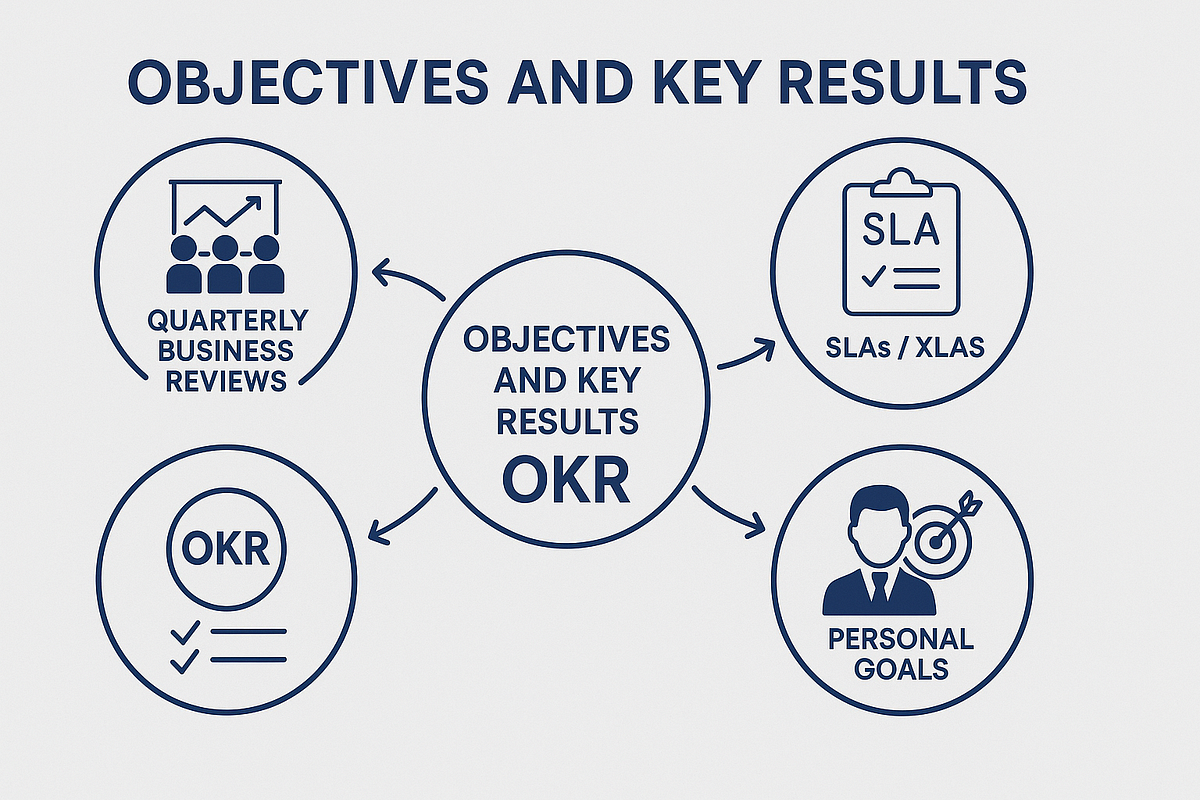Medium
3w
329

Image Credit: Medium
The Strategic Role of Objectives and Key Results (OKRs) in Modern Organizations
- Objectives and Key Results (OKRs) are essential frameworks for aligning strategic goals with measurable outcomes in organizations, initially developed by Intel and popularized by Google.
- OKRs promote transparency, focus, and alignment across all levels of an organization, intersecting with Quarterly Business Reviews (QBRs), Service-Level Agreements (SLAs), Experience-Level Agreements (XLAs), and individual performance goals like those of a Product Owner.
- An OKR consists of a qualitative objective and quantitative key results, aiming to be ambitious yet achievable, transparent, and limited in number to maintain focus, with a typical quarterly cadence.
- OKRs and QBRs work together to support organizational agility and accountability by reviewing performance metrics and adjusting efforts based on progress towards objectives.
- Service-Level Agreements (SLAs) and Experience-Level Agreements (XLAs) set operational performance and user satisfaction standards, connected to broader business goals through OKRs.
- OKRs play a significant role for individual roles like Product Owners (POs) in demonstrating alignment with company goals, prioritizing initiatives effectively, and measuring contributions objectively.
- To maximize the value of OKRs, organizations should follow best practices by integrating them with high-level strategy, reinforcing business agility with QBRs, ensuring operational excellence with SLAs and XLAs, and empowering individuals like Product Owners to deliver strategic value.
Read Full Article
19 Likes
For uninterrupted reading, download the app